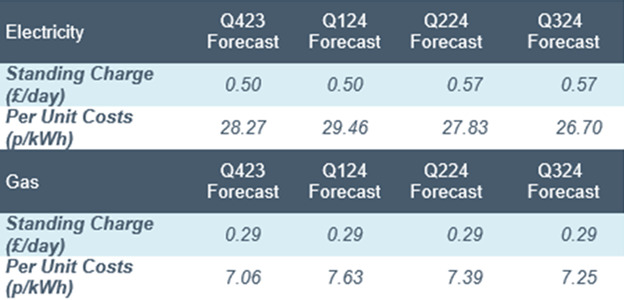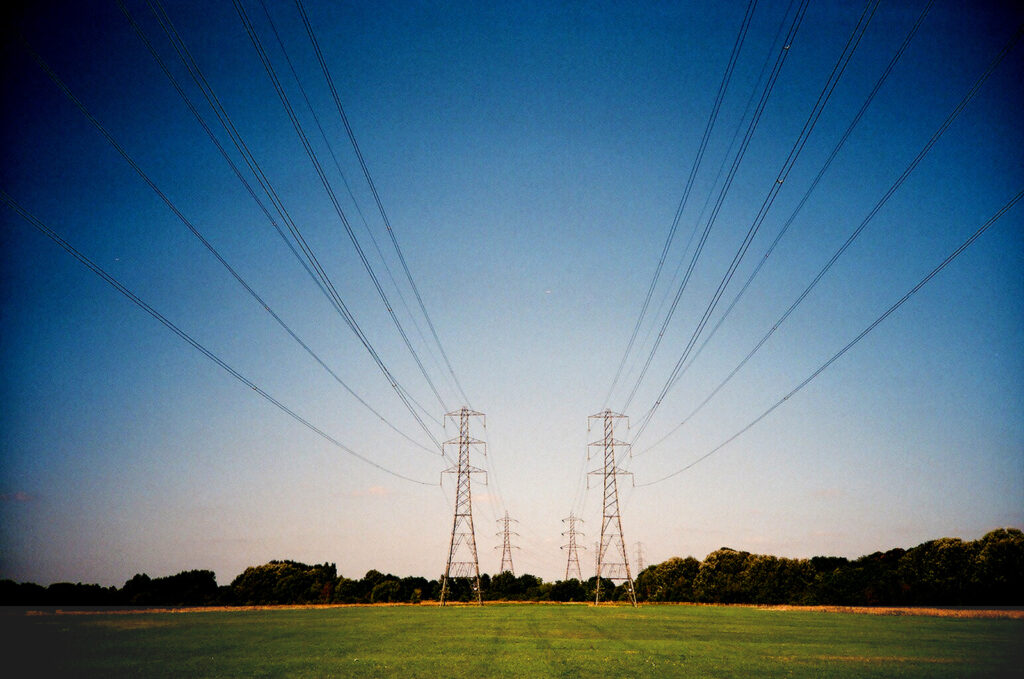Cornwall Insight has revealed its latest Default Tariff Price Cap predictions from Q4 2023 to Q3 2024 revealing “no immediate prospect” of prices returning to pre-pandemic averages.
The most recent predictions forecast a typical dual fuel household spending an average of £1,860.66 on energy between October and December 2023 – a small dip from the organisation’s previous forecast of £1,871.28 following Ofgem’s Typical Domestic Consumption Values (TDCV) revision.
Default Tariff Cap forecasts using new Typical Domestic Consumption Values (dual fuel, direct debit customer)

Default Tariff cap forecasts using new Typical Domestic Consumption Values: Standing charge and unit rate (dual fuel, direct debit customer)

The predicted price cap for Q1 2024 however has increased by just over £58 to £1,958.8.
This stability forecast over the next year is a welcome respite from the volatility households have experience during the energy crisis.
As recently as the beginning of this year the volatility of the wholesale energy market has fluctuated greatly, leading to predictions from January to mid-February this year which differ by more than £600.
Although a welcome hint at a return to normality, these prices are still well above pre-energy crisis levels.
“The news of a relative stabilising of energy bills will no doubt leave households with mixed feelings. After the surge in bills seen last winter, it may bring a sense of relief to people that energy prices are currently not forecast to surge unexpectedly. However, there will also be disappointment with prices still well above the levels seen a few years ago – leaving many longing for more affordable options,” said Dr Craig Lowrey, principal consultant at Cornwall Insight.
“The wholesale market remains the main driver of bills, and unfortunately there is no immediate prospect of prices there returning to historic averages. Therefore, it becomes imperative the government and other stakeholders explore alternative measures to cater to consumers. This includes options to provide targeted support to the most vulnerable while promoting flexible energy solutions that encourage efficient energy usage.
“Moreover, we must remain committed to funding the transition to renewable energy sources and maintaining our net-zero targets. By doing so, we can establish a stable and secure energy supply that is less susceptible to fluctuations in the international market.”





